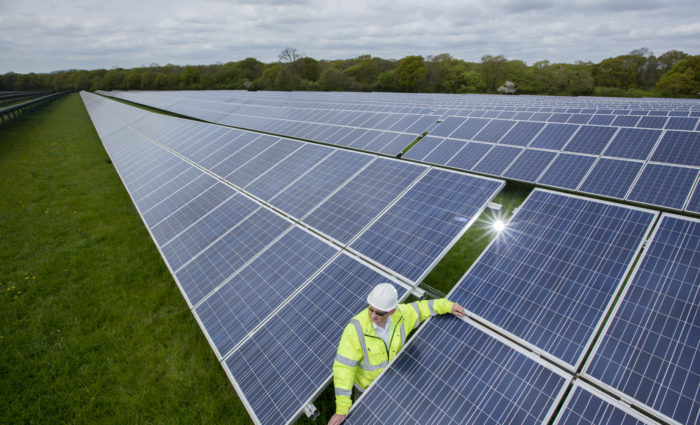
An expert roundtable has urged greater consideration be paid to the impact of exceptional weather conditions caused by climate change on solar production in the UK.
Weather conditions effect energy supply as well as demand and in July 2023, an expert roundtable, chaired by Stephen Belcher, chief scientific adviser at the Met Office, sat down to investigate how well we understand the impacts of weather conditions on the UK’s solar and wind supply.
The meeting note discussing this roundtable’s findings was published yesterday (21 November).
Solar
One of the vulnerabilities within the UK’s solar market highlighted by the roundtable was that solar infrastructure is usually concentrated in smaller areas, which increases the risk of localised infrastructure disruption, for example storm damage to cables could reduce generation capacity for the entire asset.
These risks are projected to grow due to the influence of climate change, such as rising sea levels, which would cause increased coastal storm damage and intense rainfall causing flooding.
The roundtable suggested spreading solar plants, rather than having a single point of connection, to help minimise the impact of weather events as well as increasing grid resilience in extreme conditions.
Rising temperatures will also lead to hotter summers, affecting solar panel performance. The roundtable pointed out that silicon solar panel efficiency drops when air temperature exceeds 23°C. This leaves the opportunity to explore alternatives to silicon constructed solar panels.
Moreover, solar cells operate best within the range of 400 to 800 nanometre wavelength range, which means that clouds and air quality also effect solar panel performance. The roundtable noted that modelling could produce more reliable weather forecasting compared to forecasting as there is more information on the operation and performance of solar place, including performance within specific geographical locations.
In summary, the roundtable felt that more consideration must be given to the resilience of solar farms to exceptional weather events, a point of interest currently predominantly delt with by the insurance sector.
“There is a need for research communities, industry and governments to contribute,” stated the meeting note.
Compound events
A compound event occurs during periods of concurrent low wind and low solar generation capacity, which can lead to as much as 2-3GW of renewable generation lost between the two technologies on a given day.
As an example the roundtable gave a stable anticyclone in June 2023, which caused low wind speeds over the UK. This was paired with cloudy conditions across the South-east caused by moisture from the North Sea which illustrates the potential for a moderate compound event.
Additionally, the roundtable noted that forecasting uncertainty round localised cloudiness also makes impacts on solar generation capacity harder to determine.
Long-term historic datasets can provide a good temporal resolution, however this do not factor in climate change. Therefore, the roundtable suggested future UK solar resilience analysis should account for climate change-induced variability.